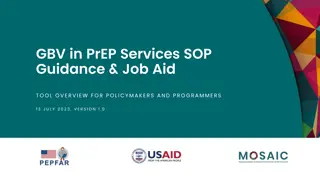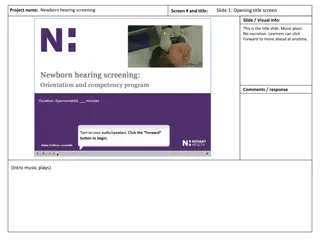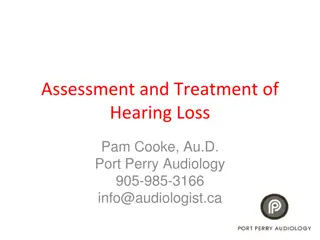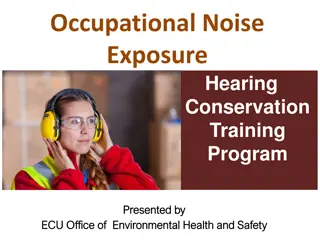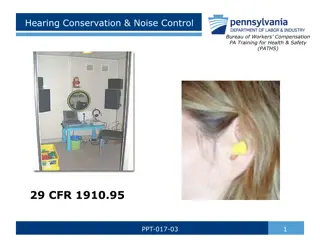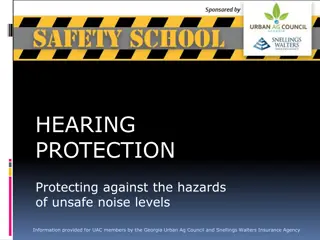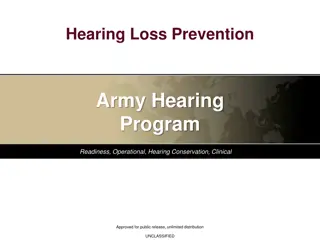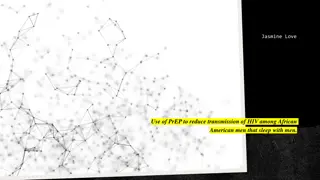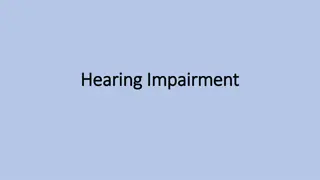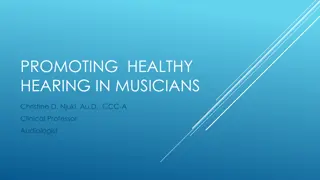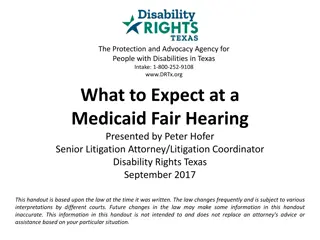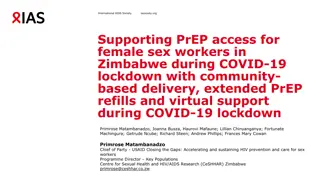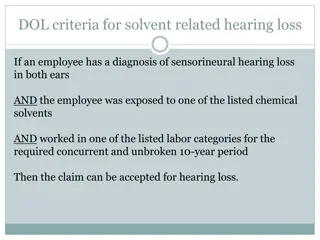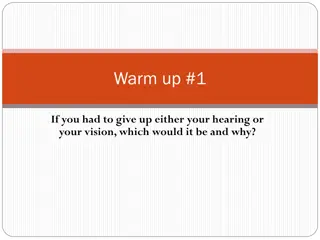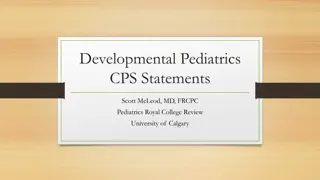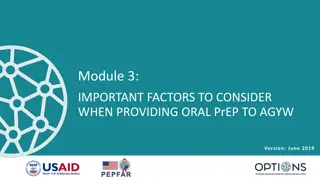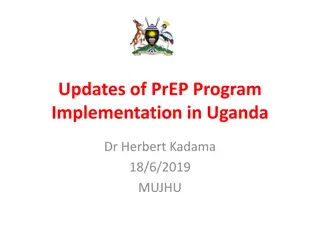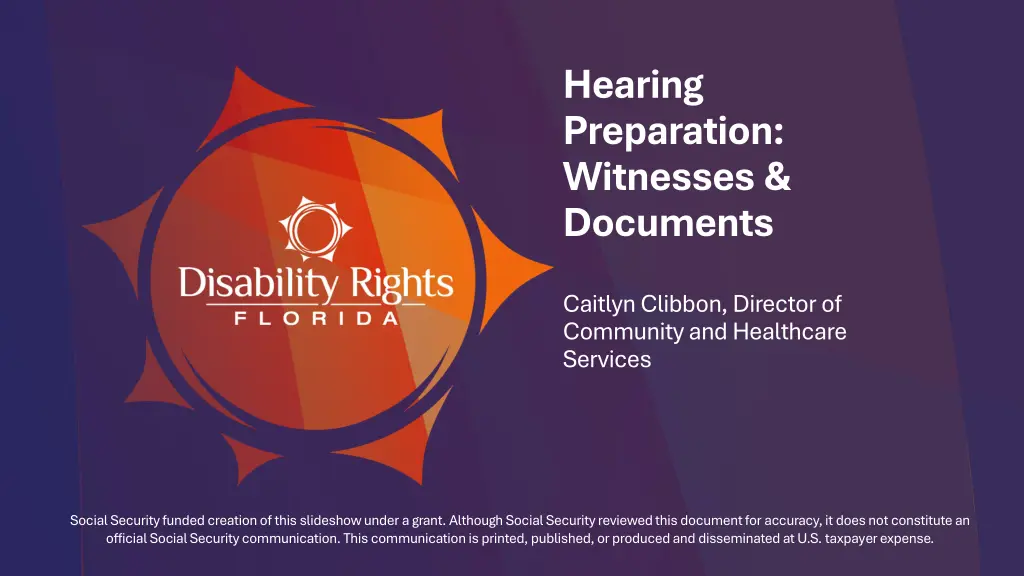
Understanding Witness Preparation for Hearings
Explore the crucial aspects of preparing witnesses for hearings, including identifying key witnesses, crafting effective questions, and utilizing documents for a fair hearing process. Gain insights from Disability Rights Florida's advocacy and educational initiatives.
Download Presentation

Please find below an Image/Link to download the presentation.
The content on the website is provided AS IS for your information and personal use only. It may not be sold, licensed, or shared on other websites without obtaining consent from the author. If you encounter any issues during the download, it is possible that the publisher has removed the file from their server.
You are allowed to download the files provided on this website for personal or commercial use, subject to the condition that they are used lawfully. All files are the property of their respective owners.
The content on the website is provided AS IS for your information and personal use only. It may not be sold, licensed, or shared on other websites without obtaining consent from the author.
E N D
Presentation Transcript
Hearing Preparation: Witnesses & Documents Caitlyn Clibbon, Director of Community and Healthcare Services Social Security funded creation of this slideshow under a grant. Although Social Security reviewed this document for accuracy, it does not constitute an official Social Security communication. This communication is printed, published, or produced and disseminated at U.S. taxpayer expense.
Caption Options & ASL Closed Captions: CC button at the bottom of the screen External Caption Viewer: Link provided in the chat ASL Interpreters: Spotlighted on your screen 3
Submitting Questions & Recording Q and A button: Located at the bottom of the screen oEmail: Webinar@DisabilityRightsFlorida.org You can submit questions at any time. We will answer them throughout the webinar. Please try to limit sharing your personal information in the chat or questions. You can reach out to our Agency if you have more specific questions related to your Fair Hearing. This webinar will be recorded and posted on our website and YouTube channel. 4
Disability Rights Florida Funding, responsibility, and authority under nine federal programs to protect the rights of Floridians with disabilities. A not-for-profit corporation since 1987. Offices in Tallahassee, Tampa, Gainesville and Fort Lauderdale. 6
Our Mission Disability Rights Florida advocates, educates, investigates, and litigates to protect and advance the rights, dignity, equal opportunities, self-determination, and choices for all people with disabilities. 7
Learning Objectives How to identify which witnesses to call to testify at your hearing. How to craft questions for your witnesses. How to cross examine witnesses from the other side. How to identify which documents to use in your fair hearing. 8
Which Witnesses Should You Call? Depends on what you are trying to prove. Your denial letter should give some basis for the denial. This is what you need to disprove. Should also look to the requirements for approval for the service you seek. Professionals are considered more neutral than family members or friends. Longer history with the applicant is better. 9
Case Example (1 of 4) Alex is a 10-year-old with Autism. She displays repetitive behaviors, hyper- fixation on certain objects, only speaks in single words, and sometimes engages in self-harm. She has also eloped multiple times, with the police being called twice. Alex s parents applied for the iBudget Waiver through APD. They received a denial letter that states there is not enough evidence to show Alex s autism is severe and pervasive. The denial points to IEPs from Alex s school that say Alex is friendly, engaging, and loves to learn as evidence that Alex s autism is not severe or pervasive. The denial also says that Alex s behaviors and symptoms associated with her Autism may improve with services available through the school or community. Alex s parents appealed the denial and will be representing her at fair hearing. 10
Which witnesses should Alexs parents call? Look to the denial: There is not enough evidence to show Alex s autism is severe and pervasive. IEPs say Alex is friendly, engaging, and loves to learn. Alex s behaviors and symptoms associated with her Autism may improve with services available through the school or community. 11
Subpoenas for Witnesses Subpoena A legal document that requires a person or entity to appear in legal proceedings to testify. Subpoena Duces Tecum A legal document that requires a person or entity to appear as a witness to give testimony and to bring specific documents with them. You are not required to subpoena every witness. You only need a subpoena if you are not sure whether the witness will come to the hearing voluntarily or if you unable to reach the person to ask. You must request subpoenas from the presiding officer or judge in your case. Subpoenas can be served by the Sheriff s Office, a process server, or any disinterested person aged 18 or older. 12
What should you ask your witnesses? Basic Elements of Witness Testimony: Introduction Credentials and experience (personal or professional) How they are associated with the case or the person seeking services The meat i.e., questions about the substantive issues Cross examination Redirect examination Questions should be short, about a single subject, and open ended. No leading. Limit testimony to the things you need the witness to help you prove. Not every witness needs to speak about every issue. Be careful asking questions if you do not already know the answer. 13
Case Example (2 of 4) Alex s parents have decided to call her primary teacher, her ABA therapist, her speech therapist, and the psychologist who evaluated Alex. Alex s mom will also provide testimony. What types of questions should each person be asked? Primary teacher? ABA therapist? Speech Therapist? Psychologist? Mother? Look to the denial: There is not enough evidence to show Alex s autism is severe and pervasive. IEPs say Alex is friendly, engaging, and loves to learn. Alex s behaviors and symptoms associated with her Autism may improve with services available through the school or community. Also, look to the facts you need to prove. 14
Cross Examination: Basics You will be allowed to cross examine the agency s witnesses and they will cross examine your witnesses. BUT, you are not required to cross every witness. Question on cross are limited to the subjects discussed on direct. You are allowed to ask leading questions on cross examination. 15
Cross Examination: Strategy Ask questions that attack parts of their testimony you think were wrong or poorly done. Did they rely on outdated or incorrect information? If so, ask them whether, if they had seen the new or correct information, would that have impacted their opinion. Did they base their opinion on very little information or very little time spent? If so, ask questions to point that out. You might choose to attack their credentials or experience if they are irrelevant or if they are a new practitioner compared to your experts. Remember, be careful asking questions you do not already know the answer to. 16
Case Example (3 of 4) The agency s only witness was their expert psychologist who reviewed Alex s application package. The expert testified they never met or spoke with Alex or Alex s parents; they only reviewed the documents provided. The expert said they based the decision to deny services to Alex on statements from the IEPs that say Alex is friendly and engaging and loves to learn. The expert asserted that Alex s positive engagement in school means her Autism is not severe and pervasive and also that she is likely to improve through the services and education at school and through community providers. What types of questions might you ask the agency s expert on cross? 17
Using Documents: Basics You can use documents while questioning witnesses. You can also submit documents without accompanying testimony and ask the presiding officer to take notice of them. This is usually done at the beginning of the hearing or at the beginning of your side s turn to present witnesses. You can use your own documents, documents provided by the Agency, or both. You must submit your documents to your opponent and to the hearing officer prior to the hearing. You will not be able to use any documents not previously shared. Parts of documents are allowed, but the other side can ask you to submit the whole document even if you only want to use part of it. If your witness or the Agency witness references a document that has not been included in the evidence, then you or the Agency can request a copy of the document be provided. 18
Which Documents Should You Use? Again, look to the denial and to the facts you must prove. Are there documents that will help your witnesses explain their testimony? E.g., Behavioral reports that the behavioral specialist authored or used, IEPs that the school representative authored or implemented, police reports that describe a situation that the witness experienced, etc. You can use documents that also include weak evidence, just be ready to address, explain, or combat it. 19
Case Example (4 of 4) Alex s parents have decided to call her primary teacher, her ABA therapist, her speech therapist, and the psychologist who evaluated Alex. What documents might Alex s parents use for each of these witnesses? Alex s mom will also provide testimony. Since Alex s mom is not a professional, can we use documents during her testimony? If so, what documents might be used? 20
Requesting Documents There may be documents that the Agency or other parties have that would be helpful for you to have to help prepare for your Hearing or to bring to the Hearing. You can make a request for documents to the Agency representative/attorney. The request may include both broad and specific requests for documents. Case example broad requests: All documents the Agency reviewed in making its determination for Alex s eligibility request. All Rules, Policies, Manuals, or Training Guides that the Agency used to make the determination. Case example specific request: Any notes created by the Agency psychologist during their review of Alex s eligibility application. All IEPs the Agency received from School Name . 21
Questions? Please contact Disability Rights Florida at: 2473 Care Drive, Suite 200 Tallahassee, Florida 32308 800.342.0823 TDD 800.346.4127 www.DisabilityRightsFlorida.org 22
Feedback Survey Tell us how we did! Scan the QR code or visit http://bit.ly/drf_training to take our Presentation Feedback Survey Use presentation code: ZW3 23

